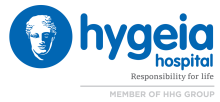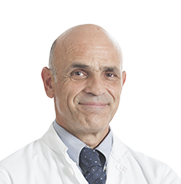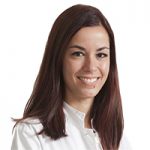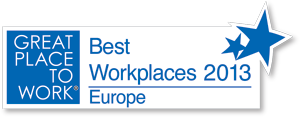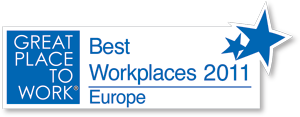- HYGEIA
- Vision & Mission
- Timeline
- Organizational structure
- Press Releases
- Social responsibility
- Awards and Distinctions
- Human Resources
- Scientific & Training activities
- Articles – Publications
- Our Facilities
- Magazines
- Healthcare Programs
- Doctors
- Services
- Medical Divisions & Services
- Imaging Divisions
- Departments
- Units
- Centers of Excellence
- Emergency – Outpatient
- Nursing Service
- Ambulances
- Patients
- Hygeia
- Υπηρεσίες
- Ιατρικά Τμήματα & Υπηρεσίες

Cytopathology Department
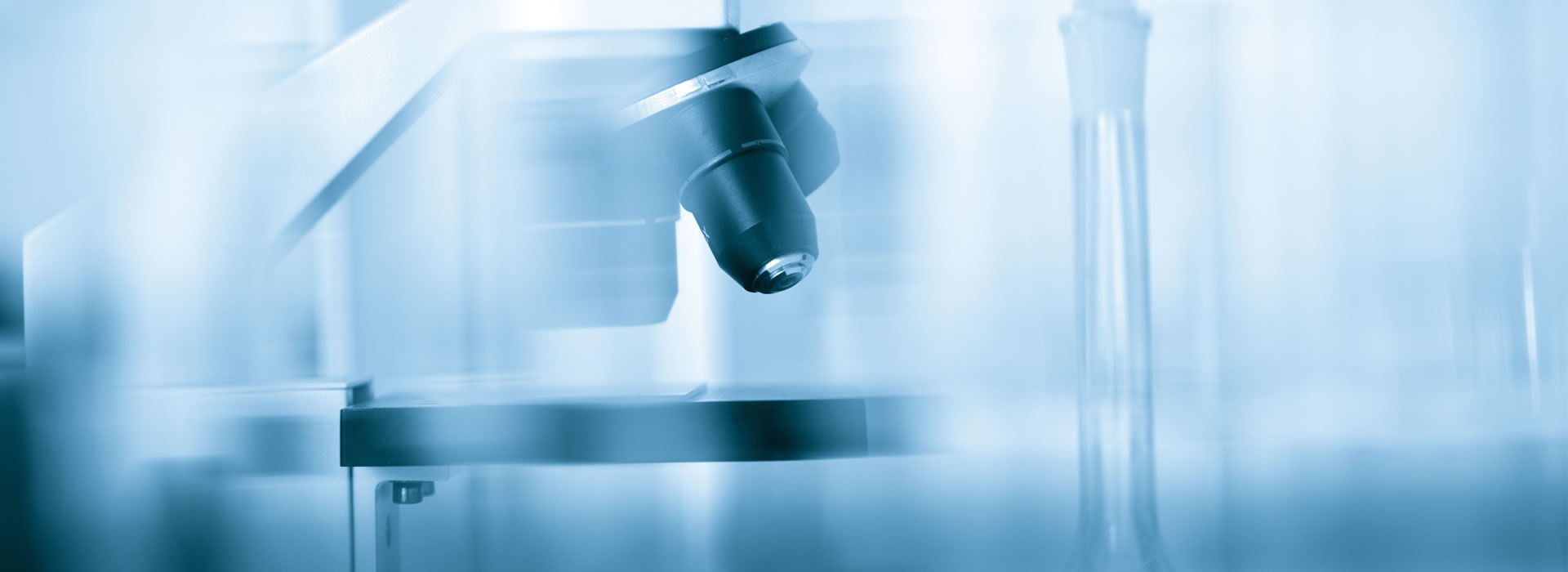
The Cytopathology Department of HYGEIA, one of the leading laboratories in our country applies current state-of-the-art methods and features high precision equipment of latest technology.The Department can perform all cytological tests regarding every system of the human body, aiming at prevention, early diagnosis and follow-up of malignant and non-malignant diseases.
Charitini Salla , M.D,M.I.A.C leads the Department which comprises of highly experienced and skilled doctors and cytotechnologists. The whole team keeps abreast of the newest developments on the field and attends national and international congresses, training seminars on an on-going and systematic basis. Our doctors have also published research papers in several Greek and international medical journals.
CONFERENCES
16/1/2016: “Cytology in the Past, the Present and the Future: From Clinical to Molecular Cytology”
11/3/2017: “2nd Scientific Meeting Zebras and Unicorns in cytology Interesting cases”
1. PREVENTION
Prevention and cytology are fully interconnected, since the most effective preventive test in medicine the internationally-known test Papanicolaou, is cytological.
It is one of the most effective means of health protection worldwide and is performed in all developed countries for uterine cervix cancer prevention.
The cytologic examination of cervicovaginal smears as per Papanicolaou is one of the few tests, which prevents the development of malignant neoplasia, since it detects precancerous abnormalities in the cells of the cervix, which may progress to cancer. Yet, they are 100% treatable when detected in time. Thus, the appropriate treatment of these lesions prevents the development of cancer of the uterine cervix. The detection of human papilloma virus (HPV) via the Pap test is also extremely important. HPV is transmitted sexually and is directly related to carcinogenesis of the uterine cervix.
At HYGEIA Hospital, the Pap test is performed by liquid based cytology method (ThinPrep), which is internationally accepted as offering the highest accuracy in diagnosis. Moreover, it holds the advantage that, in case of HPV infection, the remaining material in the Thin Prep vial can be used by the Molecular Biology Department, for determining the virus type (low or high risk, oncogenic or non-oncogenic type). With the Pap test we can also diagnose inflammation or various pathogenic microorganisms, such as trichomonads, fungi etc.
HYGEIA performs the Pap test either as part of a woman’s check-up or individually. It is a simple and quick procedure lasting less than 5 minutes. It is painless, harmless, low-cost and of high diagnostic accuracy. All women should undergo the Pap test periodically, following the onset of their sexual life. For enhancing the Pap test reliability, women should not have any vaginal douche or sexual intercourse within 24 hours prior to the test. It is also recommended that the test is performed around the middle of the menstrual cycle. At any case, the test should not be performed during the menstrual cycle period.
2. EARLY DIAGNOSIS AND FOLLOW-UP
For the majority of malignant neoplasms, prevention is not possible. However, early diagnosis is sought. The aim is to diagnose the condition at the earliest possible stage, enabling the maximum amount of therapeutic intervention possibilities and the greatest chance of long-term survival and/or cure. The role of exfoliative cytology (sputum, urine cytology etc.), as well as of the cytological evaluation of material, obtained by fine needle aspiration (FNA) in early diagnosis is extremely important.A. PALPABLE LESIONS
Since the introduction and wide application of fine needle aspiration (FNA) , fine needle aspiration cytology (FNAC) or fine needle aspiration biopsy (FNAB), cytopathology’s contribution in early diagnosis has become particularly important.
FNA is a very simple, painless and quick diagnostic method of palpable lesions, eg. of the breast, lymph nodes, salivary glands, soft tissue etc. Anything palpable over our body without evident nature or cause should be aspirated for cytological diagnosis.
As its name suggests, FNA is a type of biopsy, whereas diagnostic material is obtained from a lesion, aiming mainly at answering the crucial question, whether it is benign or malignant . The term “fine needle” means a common intramuscular injection needle (21 gauge) or a finer one. After the mass to be examined is palpated and immobilized, a needle is inserted and cells are aspirated from different parts of the lesion thus enabling a representative sample. The cellular material aspirated is smeared on glass slides, which after stained with a quick stain lasting less than a minute are ready for microscopy.
The sample’s first evaluation with the quick stain allows direct diagnosis in most of the cases. It also allows, when needed, the planning of complementary diagnostic methods and the respective processing and storing of the remaining material (e.g., cell block for immunocytochemistry, prognostic factors etc.). It should be noted that local anesthesia is not necessary for FNA, since the patient only suffers pain equal to that of an intramuscular injection or blood sampling. Hospitalization is not required. FNA is a first-line and basic diagnostic approach performed as an outpatient procedure. At centers where an FNA unit is well organized, such as HYGEIA hospital, the cytological report may be issued the same day the FNA test is performed and the clinician, on the basis of the cytological report, is able to program without delay (if needed) the appropriate management of the patient.
A very important example is breast FNA. The wide application of breast FNA combined with the clinical examination and mammogram, contributes considerably to the early diagnosis of breast cancer.
Any patient subject to HYGEIA’s aspiration procedures signs the respective consent form.B.DEEP- SEATED LESIONS
Furthermore, non-palpable lesions of deep seated organs such as the liver, pancreas lungs etc, can be aspirated guided by imaging methods, such as computed tomography – CT scan or ultrasound -US, (whereas the aspiration of the material is performed by a trained radiologist), or endoscopic ultrasound (either EUS or EBUS, where the aspiration of the material is performed by a trained gastroenterologist, or pulmonologist, respectively). In all of these cases, the aspiration is conducted in the presence of the cytopathologist, who receives the material and evaluates its adequacy microscopically on site, using a quick stain, a process called ROSE (Rapid On Site Evaluation). In this respect, chances of calling in the patient to repeat the procedure, are greatly reduced.
Also, FNA greatly contributes in the follow-up of patients, as in the diagnosis of local recurrence and distant metastasis.
To sum up, FNA is the simplest, quickest and safest method of preoperative biopsy, practically without complications, which, in the hands of an experienced and specialized cytopathologist, presents with high diagnostic accuracy. Since it does not cause any trauma nor does it leave a scar, it can be repeated periodically for following up lesions, e.g., of the breast.
- Sputum, bronchial washings and bronchial brushings for the diagnosis of lung cancer, as well as bronchioloalveolar lavage for the diagnosis of interstitial lung diseases. For smokers, sputum cytology, combined with a chest X-ray, can contribute to the early diagnosis of lung cancer, at a rate of 80%. The advantage of this test lays on its capacity to detect malignant cells, even before the tumor is visible on the X-ray or bronchoscopy.
- The total fluid is kept at room temperature and should be transported to the lab within 1 hour, because cells are not well preserved in the saline solution
- Samples with large amounts of mucus such as sputum and bronchial washings are are preserved in the fridge for 12-24 hours.
- Early morning sputum sample, derived after deep coughing, is collected in an urobox and is fixed in 50ο ethanol .Preferably samples of three consecutive days should be examined.
- Voided or catheterized urine for the detection of urinary bladder cancer. It should be noted, that this particular type of cancer at a very early stage (carcinoma in situ), is asymptomatic and can be diagnosed by urine cytology.
- First morning specimen is the specimen of choice for microscopic analysis since the urine is generally more concentrated. After collection, the sample (30ml) is placed in an urobox and must reach the lab within 2 hours. Alternatively, the sample can be stored in the fridge for an extra 1-2 hours. For final diagnosis samples from three consecutive days should be examined .
- Moreover, in the presence of hematuria, determination of the origin of erythrocytes in the urine is possible by studying their morphology, that is, if they are of glomerular or postglomerular origin.
Pleural, pericardial, ascitic and cerebrospinal fluids as well as fluids deriving from any body cavity and cyst.
*Recommended volume and preservation methods for samples, without using cell fixation procedures.
- Pleural, pericardial , ascitic fluid: can be preserved in the fridge for 24-48 hours.
- Cerebrospinal fluid /CSF: can be preserved in the fridge for 1-2 hours
- Suggested pleural fluid sample volume: > 75ml ( minimum volume accepted: 10ml with doubt regarding the detection of malignancy)
- Suggested pericardial fluid sample volume:> 60ml
- Suggested ascitic fluid sample volume :> 80ml
- Suggested volume of CSF: 2ml for children and adults/ 1ml for newborns
*The suggested volumes are related with higher sensitivity concerning the diagnosis of malignancy and are based on the latest literature data and on the analysis of a great number of cases.
- Smears from skin lesions for the diagnosis of herpetic and other diseases.
- Breast nipple discharge
3. MODERN TECHNIQUESThe most modern scientific techniques are applied in the Cytopathology Laboratory in the whole spectrum of cytological materials , that is liquid based cytology, cytochemistry, immunocytochemistry, hormonal receptors and other prognostic indices. Further more , FISH (immunofluorescence in situ hybridisation )for the detection of mutated genes and HPV-DNA typing is possible on cytological material in collaboration with the pathology and molecular biology departments of HYGEIA hospital.
These techniques require technological equipment of the highest standards; special training of the medical and technical personnel and have high clinical significance, since they offer the possibility of a more accurate diagnosis, prognosis and treatment.- Liquid Based Cytology (Thin Prep): the most modern method of cytological samples processing, the liquid phase cytology (Thin Prep), is applied in the Cytopathology Laboratory. This method is internationally recognized as one contributing in the increase of cytological tests reliability, in all cytological materials. Cells are collected in a vial containing preservation fluid, which is placed in a special apparatus and a monolayer smear is automatically created. The rest of the vial’s material is available for performing further diagnostic techniques, which might be required for clarifying or confirming the diagnosis.
Particularly for the Pap test , the monolayer smear of cervical cells, free of blood and inflammatory cells, makes even the smallest number of pathological cells visible that could have otherwise gone unnoticed using the conventional method, thus resulting in the reduction of false-negative answers and the increase of the Pap test diagnostic accuracy. Moreover, the material remaining in the vial, can be used for additional tests, without obtaining a new sample (eg. molecular techniques for HPV detection and typing, when the result of the Pap test provides such an indication). - Cytochemistry and immunocytochemistry for the identification and typing of the neoplasms
- Immunocytochemical determination of estrogen and progesterone receptors and oncogene HER-2/neu expression in FNA of breast cancer.
- Nuclear grading of malignancy.
4. SECOND OPINION CONSULTATION SERVICES
The Cytopathology Department accepts any patient who already has his/her cytological slides examined/diagnosed, for a second opinion. The patient is obliged to bring the following documents:
- Cytological smears( both conventional and liquid based )as well as cell block preparations (paraffin embedded material)
- Slides of the various cyto/immunocytochemical stains ,that have already been performed.
- Paraffin cube/s(cell block material) for further cyto/immunocytochemical studies if deemed necessary.
- Copy of the rendered cytological diagnosis.
Obtained material is recorded in detail on a document and titled “second opinion on material accepted from another hospital”.
The material will be returned to the patient upon completion of the examination while any cyto/immunocytochemical slides from HYGEIAS lab will be kept in our archives.
*The material and especially the fragile cytological slides must be packed with great caution in the special boxes, cytology labs usually have. The material does not need to be preserved in a fridge and can be left at room temperature until we receive it.
5. CONSULTATION SERVICES
Experienced staff of the Laboratory [authorized scientists who meet the requirements of ISO standard 15189 (5.1.2 & 5.1.6) communicate with the users of the services the laboratory provides, according to the following rules and regulations established by the Committee of the clinical laboratories of HYGEIA
- The clinical doctor treating each patient chooses the examinations to be carried out
- The laboratory provides appropriate information regarding the necessity of carrying out selected exams, relevant to the therapeutic options
- It provides additional explanatory notes on the result of an examination
- It provides information to the clinical doctor as regards the necessity and the usefulness of a specific additional examination
- It provides instructions about preparing the patient for the sample collection as well as the limitations of the requested examination
- It proposes the most useful examination for diagnosis and treatment and the material that should be obtained for it.
- The laboratory informs the physicians, for any deviation in the criteria of accepted samples, which might affect the analytical phase of the examination
- It also proposes further tests on the same sample, using a different methodology for confirming the result
6. CYTOLOGICAL SAMPLES THROUGH THE POST
The Cytopathology department accepts cytological material from any part of Greece, subsequent to a communication of the sender with the department for ensuring the proper delivery of the samples, following the suggested procedures.
The cytopathology laboratory does not accept:
- Cytological material without a referral, a doctor’s note and proper identification of the patient
- Slides or paraffin embedded material (cell block) broken or tampered or without the corresponding cytological report, when it comes to an advisory opinion
- Histopathology slides, unless for comparison purposes with the material of the micro biopsy, (cell block)
- Blood and blood derivatives
- The laboratory does not accept blood samples for detection of circulating cancer cells.
7. TURNAROUND TIME (Time frame in working days)
- CONVENTIONAL PAP TEST: 5 DAYS
- LIQUID BASED PAP TEST: 2 DAYS
- BODY FLUID SAMPLE : 3 DAYS
- CEREBROSPINAL FLUID SAMPLE: 2 DAYS
- BRONCHOALVEOLAR LAVAGE (BAL): 3 DAYS
- SPECIMENS COLLECTED WITH A BRUSH: 3 DAYS
- FNA OF PALPATED AND DEEP –SEATED ORGANS: 2 -10 DAYS
- CYTO/IMMUNOCYTOCHEMICAL EXAMINATION: 5 DAYS
- BRONCHIAL WASHINGS-BRUSHINGS
Probable prolongation of the turnaround time may rarely occur in case of immunocytochemical investigation of a metastatic malignant neoplasm of unknown primary site.
8. PARTICIPATION IN MULTIDESCIPLINARY MEETINGS
The cytopathology laboratory participates in the oncological meetings of the hospital, whereas challenging cases are presented in detail. Doctors comment on each case, based on their field of expertise.
- Breast cancer oncological meetings- V.kyriakidou
- Digestive system cancer oncological meetings: Ch. Salla
- Gynecologic cancer oncological meetings- A.Kapoula).
9. INTERNATIONAL COLLABORATION:
The Hygeia cytopathology laboratory collaborates with internationally renowned laboratories such as:
- Massachusetts General hospital /Harvard University ( Prof Martha Bishop Pitman ).
- Weil Cornell Medical college, ( Grace Yang).
 Contact Us
Contact UsLevel A of MITERA Hospital
Telephone
HYGEIA
+30 210 686 7458
MITERA
+30 210 686 9834-811Monday to Friday
07:00 -17:00Medical Team
- Director
-
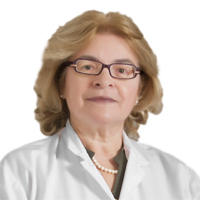 Salla Charitini
Salla Charitini - Αttending Physicians
-
 Kiriakidou Vasiliki
Kiriakidou Vasiliki -
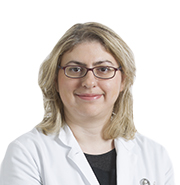 Klapsinou Eirini
Klapsinou Eirini
- © 2007-2025 HYGEIA S.M.S.A.
- Personal Data Protection Policy
- COOKIES Policy
- Terms of Use
- Privacy Policy
- Credits
- Sitemap
- Made by minoanDesign
Ο ιστότοπoς μας χρησιμοποιεί cookies για να καταστήσει την περιήγηση όσο το δυνατόν πιο λειτουργική και για να συγκεντρώνει στατιστικά στοιχεία σχετικά με τη χρήση της. Αν θέλετε να λάβετε περισσότερες πληροφορίες πατήστε Περισσότερα ή για να αρνηθείτε να παράσχετε τη συγκατάθεσή σας για τα cookies, πατήστε Άρνηση. Συνεχίζοντας την περιήγηση σε αυτόν τον ιστότοπο, αποδέχεστε τα cookies μας.
Αποδοχή όλων Άρνηση όλων ΡυθμίσειςCookies ManagerΡυθμίσεις Cookies
Ο ιστότοπoς μας χρησιμοποιεί cookies για να καταστήσει την περιήγηση όσο το δυνατόν πιο λειτουργική και για να συγκεντρώνει στατιστικά στοιχεία σχετικά με τη χρήση της. Αν θέλετε να λάβετε περισσότερες πληροφορίες πατήστε Περισσότερα ή για να αρνηθείτε να παράσχετε τη συγκατάθεσή σας για τα cookies, πατήστε Άρνηση. Συνεχίζοντας την περιήγηση σε αυτόν τον ιστότοπο, αποδέχεστε τα cookies μας.




















